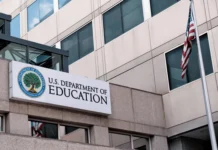OPINION
by M.E. Bronson
In the wake of the record turnout in 2008 by traditionally Democratic voters, Republican-led state legislatures made election reform one of their highest priorities. In swing states, the reform included a shift toward stringent laws for voter identification and registration. There were also significant changes in laws concerning early and provisional voting. Some southern states, like Texas, moved to enact controversial redistricting laws. All of these changes have been met with vigorous opposition from Democrats and lawsuits have been filed challenging almost every piece of legislation. Late Friday, the wave of GOP-crafted election reform was again set back as a federal judge blocked an Ohio law that restricted “in person early voting” in the three days before the election. Opponents successfully challenged the law that sought to eliminate the casting of ballots during the weekend before the election unless the voter was a member of the military. The court’s ruling — that will likely be appealed — was the second recent blow to what many believe is a coordinated voter suppression effort. On Monday, another federal judge granted an injunction against a change to Ohio’s election rules concerning provisional ballots cast in the incorrect precinct. The law had required that those ballots be discarded, even if the voter had been guided to the wrong precinct by a poll worker.
Ohio is not the only state where election litigation is raging. Nationwide, federal courts have — for the most part — repudiated the new laws. The courtroom drama has been heating up throughout the summer and has come to an absolute boil over the last month:
Florida – This week, a federal judge in Florida permanently blocked a bill that was heavily criticized for curtailing voter registration drives. The bill had imposed several strict penalties on voter registration groups including fines of up to $1000 if completed registration forms were submitted more than 48 hours after completion. On Thursday, another federal court prohibited Florida from reducing the number of early voting days and hours in some of its counties. The affected counties are covered by Section 5 of the Voting Rights Act of 1964 and have been found to have a history of discrimination against minorities. Section 5 requires that federal officials pre-approve all election laws for the counties and states (mostly southern) covered by the Act. The court refused to clear the new early voting law, ruling that it would have a discriminatory impact on African-Americans and Latinos.
Texas — Earlier this summer, a federal court blocked the state’s voter identification law and found that it was in violation of the Voting Rights Act of 1964. Texas is covered by Section 5 of the Act and the court ruled that the law unduly burdened the poor and would have a disproportionate effect on African Americans and Latinos. Earlier this week, another federal court decided that the state’s redistricting law was also in violation of the Voting Right’s Act. As a result, the voting maps used by Texas for its May primaries will also be used for November’s election.
Wisconsin – In July, a state judge permanently barred Wisconsin’s voter identification law from taking effect. The Wisconsin State Supreme Court has said it will not review lower (trial) court rulings until decisions have been reached in voter identification cases pending in the state’s appellate courts. The appellate courts are currently reviewing challenges of two different trial judges’ orders striking down the identification law.
South Carolina — On Monday, a federal court began considering the legality of South Carolina’s voter identification law. South Carolina is covered by Section 5 of the Voting Rights Act and the Department of Justice has refused to pre-approve the law. Closing arguments in the case are set for September 24.
Pennsylvania — Earlier this month, a state court upheld Pennsylvania’s voter identification law. An appeal to the state’s Supreme Court is anticipated.
What are your thoughts on voter suppression? Tell us what’s happening in your state?
Like The Burton Wire on Facebook. Follow us on Twitter@TheBurtonWire.








